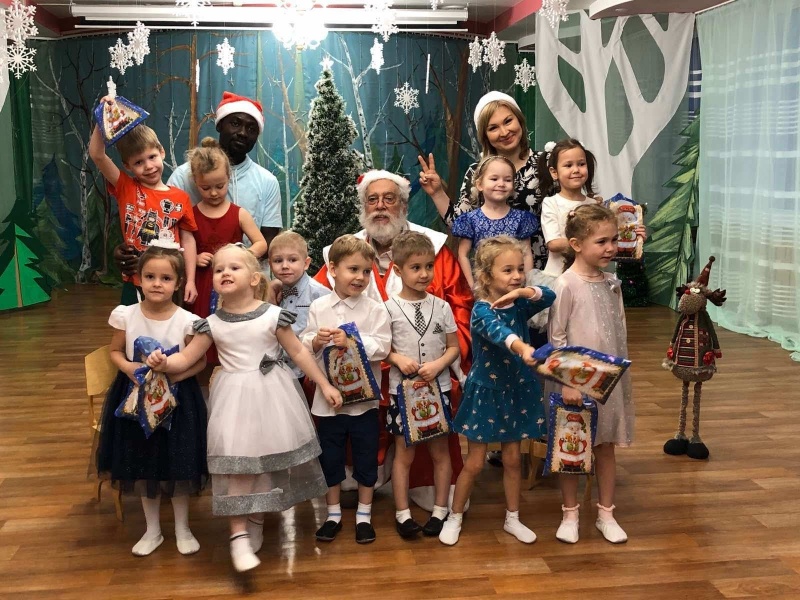03.03.2020Krasnoyarsk educational institutions slowly but steadily incorporate multilingual approach to their systems. To date, American, British, Slovak, Chinese, Indian, Ghanaian, Czech, Senegalese, French and German teachers have been working with Krasnoyarsk children.
Communication takes place in a natural environment. Together with foreigners, children play, do sports, read books, perform stage plays, they eat together and much more. This approach is called event-triggered multilingual approach. It contributes to the development of thinking, speech, tolerance, empathy, communication skills, flexibility and multiculturalism. Children get themselves immersed in the language environment, study the traditions of other countries, learn to find a common language with different peoples and respect their point of view.
Day care centre № 319
Timothy Schwalbe, 67 years old. Born and raised in the US Wisconsin state, 20 years ago he married a Krasnoyarsk resident and moved to Siberia for her. He loves it here in Russia. He says the weather is no different from the American, but the prices are much lower and the local are friendly. Timothy never really learned Russian, but he believes that in childhood he could easily deal with a couple of languages. So now he is more than happy to help Krasnoyarsk preschool children learn a foreign language and talks a lot about cultures and traditions of different countries. Timothy believes that children all around the world should be surrounded by multilingual environment.

Day care centre «Newtoshka»
Adama Ndao came to our city from the Senegalese Dakar. Three times a week he comes to the Newtoshka kindergarten. Adam does not conduct any classes, but he plays, walks and talks a lot with the kids. The Senegalese does not know the Russian language, so the children still need to figure out how to convey the information to an English-speaking friend. Some talk via drawings, some try to communicate with gestures, others decide that it is easier to learn English. Adama thinks it is necessary to start studying several foreign languages at once in childhood. Preschool children still have no barriers, they are not afraid to make mistakes. In addition, learning languages is the best charge for the brain.
%20(3).jpg)
School № 45
At school №45 two foreigners at once are responsible for learning foreign languages and outdoor activities: George Asare from Ghana and Khuntak Dutta from India. They are certified English teachers and have been living in Russia for the last 5 years. However, their work at school has little to do with your typical English lessons.
%20(2).jpg)
This is live communication, friendship, joint walks, games and even morning exercises. There are no barriers; even those children who did not succeed in mastering the English language are quickly drawn into communication with foreigners. George and Khuntak are both convinced the future lies with a multilingual education. It broadens the horizons, removes language barriers, develops communication skills, teaches children tolerance.
.jpg)
Day care centre № 306
Joseph Dawson is 43 years old. He came to our city from Ghana to study at the university, and decided to stay in Krasnoyarsk after receiving his diploma. Three days a week he devotes his time to communication with preschool kids. He talks with children exclusively in English. Joseph himself grew up in a multilingual environment and is convinced that from early childhood, a person needs to communicate with people who speak different languages. That way, children become more sociable, open, erudite and even better master disciplines that are not related to foreign languages!
.jpg)
Educational institutions will present their experience at the international educational forum, which will be held for the first time in Krasnoyarsk from March 19 through 21. The guests will be presented with the City of Education project encapsulating a number of areas that are not so often found in institutions across the country, but are already being actively introduced in Krasnoyarsk schools, kindergartens and centers of further education. These include multilingualism, developing education, the digitalisation of the educational process, investment mechanisms for financing institutions, partnerships between business and education institutions, a unique deschooling project, and much more.
